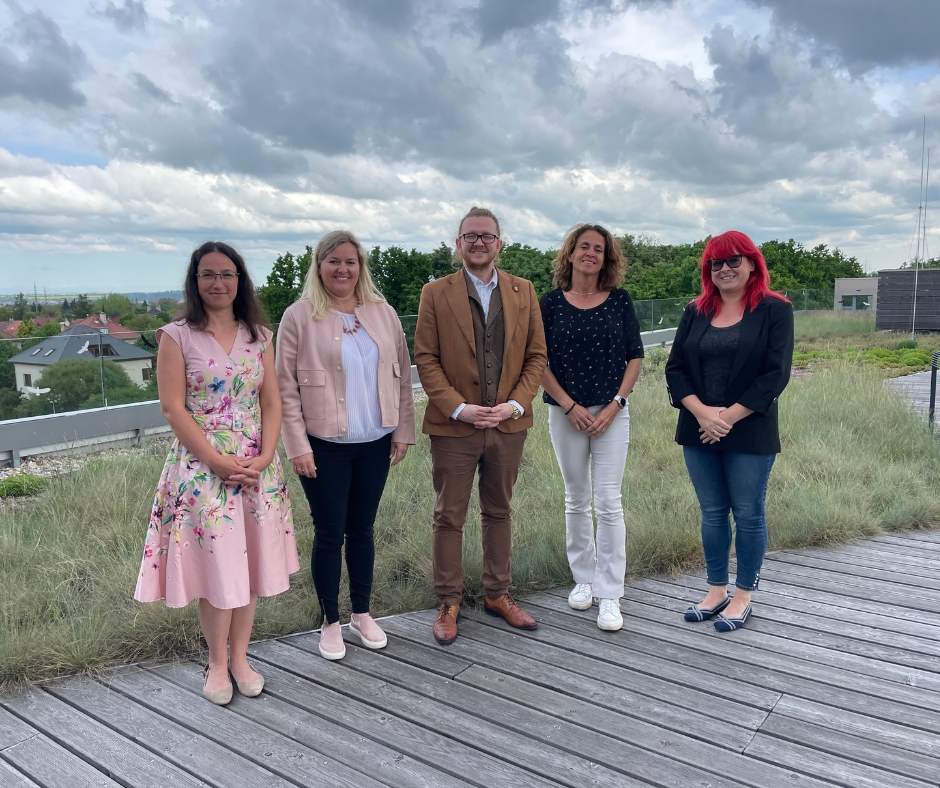On Monday, 5 May, a meeting of the Academic Senate of the Faculty of Tropical AgriSciences (FTZ) was held, during which the new Dean of the faculty presented his proposals for Vice-Deans. The Academic Senate of FTZ expressed its support for the Dean's intention to dismiss the current Vice-Deans and to appoint the proposed new Vice-Deans.
The proposed candidates introduced not only their professional experience but also outlined their visions and priorities for the future development of the faculty. Their presentations reflected a commitment to transparent communication, interdisciplinary collaboration, and support for both students and researchers.
The newly appointed Vice-Deans are:
Vice-Dean for Science, Research and Doctoral Studies – Assoc. Prof. Johana Rondevaldová, Ph.D. Johana Rondevaldová has been affiliated with FTZ since 2006. She has published over 30 papers indexed in Web of Science, holds an H-index of 15, and has received more than 460 citations. Since 2022, she has been a member of the Czech Academy of Agricultural Sciences (Crop Production Section). She has long served as a supervisor of theses across all levels of study and is the guarantor of the online programme Tropical Agroecology. Her priorities include stabilising the number of PhD students, supporting scientific publication efforts, promoting applied research, raising awareness of Open Science principles, and popularising the scientific achievements of the faculty.
Vice-Dean for Education and Quality – Assoc. Prof. Klára Urbanová, Ph.D. Klára Urbanová has been a member of FTZ since 2015. She graduated from the University of Chemistry and Technology in Prague and earned her PhD at IOCB/UCT Prague. She supervises theses at all study levels and is the guarantor of six courses. Her focus lies in increasing student enrolment in bachelor’s and master’s programmes, enhancing the faculty’s appeal to both Czech and international applicants, improving the progression between study levels, revising and modernising study plans, and supporting the pedagogical competencies of academic staff and the overall satisfaction of students.
Vice-Dean for International Relations – Ing. Petra Chaloupková, Ph.D., dr.h.c. Petra Chaloupková continues in her role as Vice-Dean for International Relations. With more than 20 years of experience in international collaboration, she coordinates over 30 projects within the Erasmus+ and CzechAid frameworks. In 2024, she received the ICA Excellence Award – Networking. She has contributed to the implementation of double and multiple degree programmes and leads the research team Consumer Behaviour and Capacity Building. Her future plans include expanding FTZ’s international partnerships, launching a new double degree programme with Prince of Songkla University in Thailand, enhancing mobility opportunities, and diversifying the international student body.
Vice-Dean for Faculty Development – Mgr. Martina Komárková, Ph.D. Martina Komárková has been part of FTZ since 2018. She is the guarantor of two and lead lecturer of two additional courses, and she contributes to the development of a virtual eland antelope farm as part of the National Recovery Plan (NPO) project. She supervises theses at all levels and is an ethological advisor for the organisation Česká krajina. Her goals include restructuring the faculty’s project centre, strengthening support for grant applicants, fostering cooperation with alumni, and promoting better use of faculty facilities (the botanical garden, research station in Lány) to increase the visibility of FTZ.
New Faculty Secretary
Ing. Mgr. Lukáš Pacek, Ph.D. has been appointed as the new Faculty Secretary. He previously worked as an international project manager at CZU and led the Project and Innovation Centre of FAPPZ CZU from 2017–2020. He holds a Ph.D. in wastewater treatment.
We wish all newly appointed members of the FTZ leadership great success in their new roles.
The meeting also included a presentation of the faculty leadership’s priorities for the upcoming period. These focus on changes in the organisational structure, scientific focus of individual departments, and the draft budget for 2025, with an emphasis on supporting research and doctoral studies.


